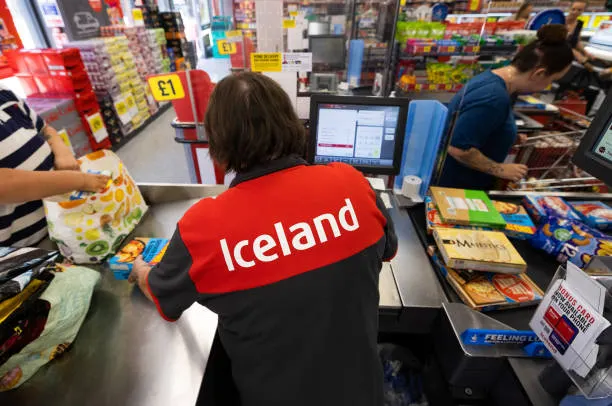Iceland food price rise is back on the agenda. The discount chain says it will increase prices by up to 5 percent in coming months, citing wage pressures stemming from Chancellor Rachel Reeves’s Autumn Budget.
The warning, issued this week by the discount chain, comes as supermarkets face a surge in payroll and compliance costs. Reeves’s July reforms—including an increase in the minimum wage and changes to employer National Insurance—have added an estimated £7 billion to the sector’s annual cost base, according to the British Retail Consortium.
“We will inevitably have to pass some of these costs on,” an Iceland spokesperson said. “We are doing what we can internally, but this is systemic.”
Supermarkets Already Moving Prices Up
Iceland’s warning isn’t speculative. According to the BRC, 85 percent of retail finance directors have already pushed through price rises in core grocery categories since the Budget announcement. While much of the early increase is being absorbed through private label, the cumulative effect is now feeding through to shelf-edge pricing.
New forecasts sharpen the outlook: the Institute of Grocery Distribution (IGD) now expects UK food inflation to peak at 5.1 percent as early as late summer. Meanwhile, Kantar reports grocery inflation hit 5.2 percent in mid‑July, the highest rate since early 2024—and warns that, if shopping patterns remain steady, households could face an additional £275 in annual groceries.
The BRC expects food price inflation to peak at 6 percent by December. Iceland puts its own ceiling slightly lower, at 4 to 5 percent over the next two quarters, but concedes further increases are likely if energy or logistics costs spike again this winter.
Iceland Food Price Rise Pressures Value Retailers
The timing is awkward. Iceland has built its reputation—and much of its customer base—on value messaging and fixed-price offers. But that model becomes harder to defend when input costs climb across chilled, ambient and frozen lines simultaneously.
Other discounters, including Farmfoods and Heron, are facing similar margin compression. One retail analyst called Iceland’s warning a “canary signal” for the rest of the low-margin sector.
“This is not a PR tactic. It’s a hedge against margin shock,” the analyst told GSN. “They’re making the first move before Q4 demand peaks.”
Treasury Response and Supplier Tension
Trade groups have urged HM Treasury to provide early guidance on the Budget’s operational impact. But the Chancellor’s office has so far maintained that its wage and tax policy is “fair and long overdue,” declining to issue targeted relief for food retailers.
Several suppliers contacted by GSN said they were caught off guard by the scale of grocer-level cost pass-through. One frozen category distributor said major buyers had “quietly dropped” volume-based promotional terms in recent weeks, citing “labour friction.”
Household Impact and Shopper Trade-Down
The inflationary signal is clearest at the shelf. Budget retailers are now reporting trading down not just from branded to private label, but from mid-tier private label to entry-level SKUs. The biggest pullback is visible in meat, dairy, and multipack beverage.
That shift may benefit Iceland tactically in the short term—especially if its pricing remains flatter than the big four—but long-term, the brand’s low-price promise becomes harder to uphold.
GSN will continue monitoring price volatility across value, family, and chilled categories ahead of the pre-Christmas cycle. Retailers are expected to finalise Q4 promotions by late September.



